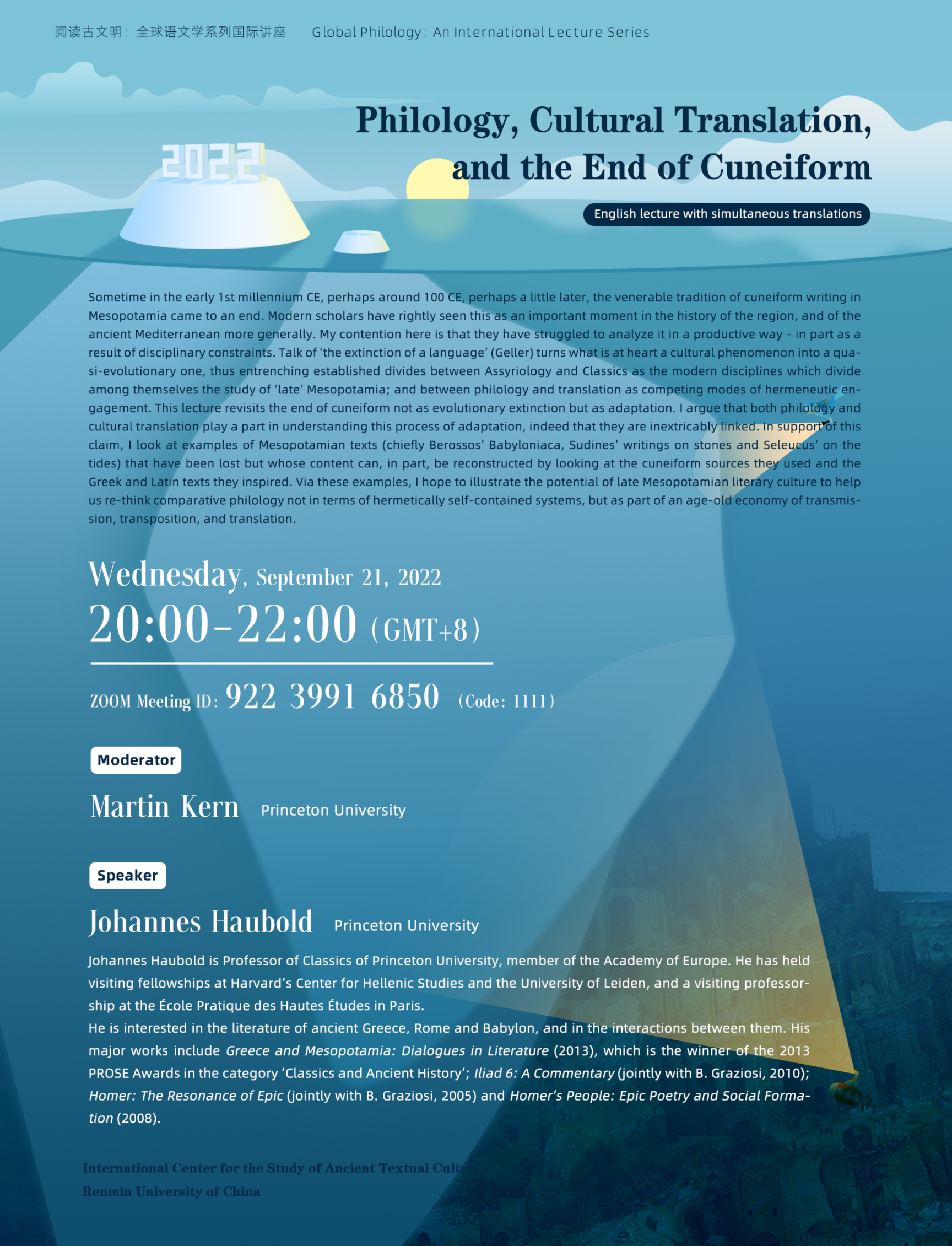[Upcoming]Phantom Texts: Philology, Cultural Translation, and the End of Cuneiform
发布时间:2022-09-21Global Philology:An International Lecture Series
Phantom Texts:
Philology, Cultural Translation, and the End of Cuneiform

Title: Phantom Texts: Philology, Cultural Translation, and the End of Cuneiform
Speaker: Johannes Haubold , Princeton University
Moderator: Martin Kern, Princeton University
Time: 20:00-22:00 (GMT+8), September 21, 2022.
Zoom Meeting ID: 922 3991 6850 (Code: 1111)
Zoom Link:
https://zoom.us/j/92239916850?pwd=MnhBaGxZY1ZpQ3BGMWovRHR1U0h2QT09
About the Speaker:
Johannes Haubold is Professor of Classics of Princeton University, member of the Academy of Europe. He has held visiting fellowships at Harvard’s Center for Hellenic Studies and the University of Leiden, and a visiting professorship at the École Pratique des Hautes Études in Paris.
He is interested in the literature of ancient Greece, Rome and Babylon, and in the interactions between them. His major works include Greece and Mesopotamia: Dialogues in Literature (2013), which is the winner of the 2013 PROSE Awards in the category ‘Classics and Ancient History’; Iliad 6: A Commentary (jointly with B. Graziosi, 2010); Homer: The Resonance of Epic (jointly with B. Graziosi, 2005) and Homer’s People: Epic Poetry and Social Formation (2008).
Lecture Introduction:
Sometime in the early 1st millennium CE, perhaps around 100 CE, perhaps a little later, the venerable tradition of cuneiform writing in Mesopotamia came to an end. Modern scholars have rightly seen this as an important moment in the history of the region, and of the ancient Mediterranean more generally. My contention here is that they have struggled to analyze it in a productive way – in part as a result of disciplinary constraints. Talk of ‘the extinction of a language’ (Geller) turns what is at heart a cultural phenomenon into a quasi-evolutionary one, thus entrenching established divides between Assyriology and Classics as the modern disciplines which divide among themselves the study of ‘late’ Mesopotamia; and between philology and translation as competing modes of hermeneutic engagement. This lecture revisits the end of cuneiform not as evolutionary extinction but as adaptation. I argue that both philology and cultural translation play a part in understanding this process of adaptation, indeed that they are inextricably linked. In support of this claim, I look at examples of Mesopotamian texts (chiefly Berossos’ Babyloniaca, Sudines’ writings on stones and Seleucus’ on the tides) that have been lost but whose content can, in part, be reconstructed by looking at the cuneiform sources they used and the Greek and Latin texts they inspired. Via these examples, I hope to illustrate the potential of late Mesopotamian literary culture to help us re-think comparative philology not in terms of hermetically self-contained systems, but as part of an age-old economy of transmission, transposition, and translation.